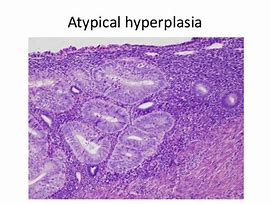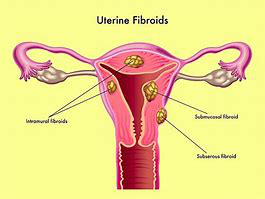Gynecological inflammation includes many kinds, in the end will not evolve into cancer, but also to see what kind of gynecological inflammation, each gynecological inflammation of the final cancer is different. Here are some of the female diseases most likely to get cancer:
1. Endometrial hyperplasia
Studies have found that endometrial hyperplasia has a tendency to become cancerous, and is generally classified as precancerous lesions in medicine. However, most endometrial hyperplasia is reversible and may also remain in a persistent benign state, with a minority developing cancer after prolonged endometrial hyperplasia.
Endometrial hyperplasia is more common among young and middle-aged women, the typical symptoms include irregular vaginal bleeding, or heavy vaginal bleeding after long-term amenorrhea. Endometrial hyperplasia is also associated with endocrine conditions, long-term endocrine abnormalities affect ovulation function, and there is a low fertility rate in patients under 40 years of age, the infertility rate could reach up to 90%.

2. Vulvar pigment nevus
Vulvar pigmented nevi are black spots that occur on the vulvar skin, some smooth, some rough, and some may have hair growth. Vulvar nevi are more likely to become malignant than other moles in the body because the vulva is often rubbed and irritated, and more sensitive to the stimulating effects of sex hormones, they tend to increase in size and darken during puberty and pregnancy.
According to statistics, 40% ~ 80% of malignant melanoma occurred in pigmented nevus. Maternity and infant hospital experts suggest that vulvar pigmented nevus must be checked as early as possible by gynecological examination, and preventive resection needs to be done to stop malignant transformation if necessary.

3. Uterine fibroids
Uterine leiomyoma is a common benign tumor in young and middle-aged women. At present, the cause of the disease is not very clear in the medical community, but it is generally considered to be related to endocrine disorders.
If the rapid enlargement of uterine fibroids will oppress the rectum and bladder, it can lead to difficulty in defecation, and some types of uterine fibroids may evolve into malignant. Therefore, after the diagnosis of uterine fibroids, patients need to follow the guidelines of doctors and go for regularly return visits, pay attention to menstrual conditions, be carefully in preventing malignant transformation of fibroids.

4. Hyperplasia of mammary glands
Breast cystic disease, fibroadenoma, papilloma are common types of breast hyperplasia, although most of them are benign lesions, but it is possible for the chances of evolvement into malignant, especially in patients with a family history of breast cancer, they should be more vigilant.
High-risk groups should be closely observed, and they are suggested for regular return visits to the hospital, if rapid tumor growth, breast hardening or nipple bloody secretions is found, they should go for immediate treatment.

